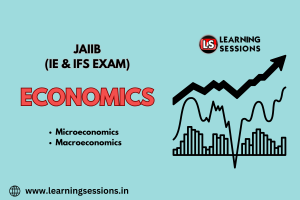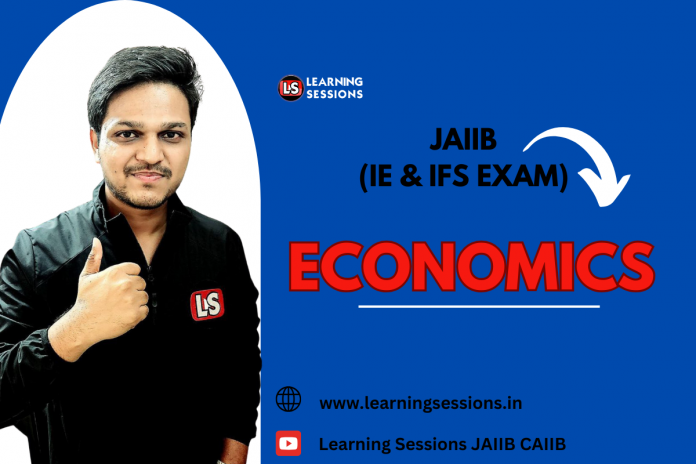Economics is the base of understanding how societies allocate resources, distribute wealth, and facilitate growth. For those preparing for the JAIIB (Junior Associate of the Indian Institute of Bankers) examination, a thorough hold of economic principles and their application within the Indian Economy (IE) and Indian Financial System (IFS) is necessary. Learning Sessions offers insightful case study on how economics influences financial institutions, banking practices, and overall economic development. This article explores key economic concepts, their relevance to the Indian financial system, and the implications for JAIIB aspirants.

📚 JAIIB Study Resources 📚
👉 Check Here
👉 Check Here
👉 Check Here
👉 Get Tests Here
👉 Check Here
DOWNLOAD PDF ECONOMICS -CASE STUDY
Economics is the study of how individuals, businesses, and governments allocate limited resources to meet unlimited wants. It is broadly divided into two branches:
-Microeconomics: Focuses on individual and firm-level decisions, such as supply and demand, pricing, and resource allocation.
-Macroeconomics: Deals with the economy as a whole, analyzing national income, inflation, unemployment, and government policies.
In the context of the Indian economy, understanding both micro and macroeconomic concepts is critical for banking professionals. For the extensive preparation of candidates, get details through our YouTube videos for JAIIB IE & IFS Module wise Syllabus with explanations and tips to help candidates in their preparation journey.
You may also like these JAIIB Case Studies:
JAIIB | IE & IFS | RESERVE BANK OF INDIA
JAIIB | IE & IFS | INSURANCE REGULATORY AND DEVELOPMENT AUTHORITY OF INDIA (IRDAI)
The Indian financial system, comprising banks, non-banking financial institutions (NBFCs), and capital markets, plays a vital role in supporting economic growth. Key economic principles are:
- Monetary policy
- Fiscal policy
- Inflation and Price stability
To sum up, Economics is at the heart of comprehending the Indian economy and its financial system. The interaction between monetary policy, fiscal policy, inflation control, and banking practices determines the pace and sustainability of economic growth. For JAIIB aspirants, mastering these concepts is crucial, as they form the basis of decision-making in banking and finance. This article on the case study of economics in the Indian economy and financial system is presented by Learning Sessions, committed to advancing the professional development of banking and finance professionals through in-depth research and education. Learning Sessions provides additional information about JAIIB IE & IFS LIC ACT, 1956 by giving examples of real life scenarios.
Learn more about this case study through our YouTube channel and PDF.
Get access to our Telegram Channel for free Pdfs of JAIIB.





